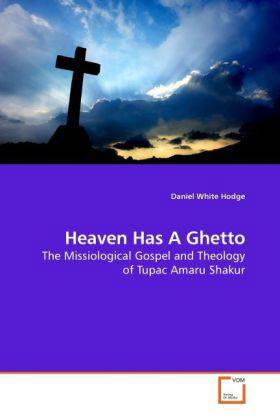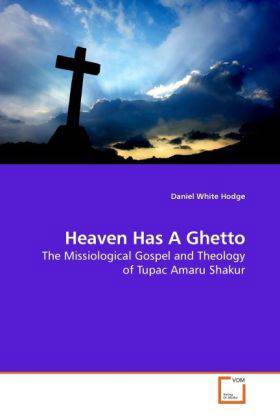
Je cadeautjes zeker op tijd in huis hebben voor de feestdagen? Kom langs in onze winkels en vind het perfecte geschenk!
- Afhalen na 1 uur in een winkel met voorraad
- Gratis thuislevering in België vanaf € 30
- Ruim aanbod met 7 miljoen producten
Je cadeautjes zeker op tijd in huis hebben voor de feestdagen? Kom langs in onze winkels en vind het perfecte geschenk!
- Afhalen na 1 uur in een winkel met voorraad
- Gratis thuislevering in België vanaf € 30
- Ruim aanbod met 7 miljoen producten
Zoeken
Heaven Has A Ghetto
The Missiological Gospel and Theology of Tupac Amaru Shakur
Daniel White Hodge
Paperback | Engels
€ 115,95
+ 231 punten
Omschrijving
Tupac Amaru Shakur is considered a Hip Hop saint and theologian. Though he is dead (September 13, 1996), his words, lyrics, and life still live on as a symbol of hope for many in the urban community. Tupac was the irreverent Reverend for many, in the inner city as well as the suburbs. This book deals with the gospel and theological message of Tupac Amaru Shakur from a missiological perspective. The book investigates the lyrical, poetic, and spiritual message of Tupac in relation to understanding and engaging with Hip Hop youth. This book is not an ethnomusicological study, rather an urban cultural study with a stress on the ethnomusicological aspects of Tupac's music. Narrative is central to the book; the narrative Tupac wove connects his audience not only to life and the issues it brings in general, but also to the story of Christ and the struggles Christ faced. Ethnolifehistory is used to analyze Tupac's life. In addition to this, ethnohistory aids in dissecting Tupac's life into five major eras. Hip Hop and urban popular culture provide the context for the study, and urban postmodernism is discussed as a platform in which Tupac rose and preached from.
Specificaties
Betrokkenen
- Auteur(s):
- Uitgeverij:
Inhoud
- Aantal bladzijden:
- 360
- Taal:
- Engels
Eigenschappen
- Productcode (EAN):
- 9783639207637
- Verschijningsdatum:
- 27/11/2009
- Uitvoering:
- Paperback
- Formaat:
- Trade paperback (VS)
- Afmetingen:
- 152 mm x 229 mm
- Gewicht:
- 526 g

Alleen bij Standaard Boekhandel
+ 231 punten op je klantenkaart van Standaard Boekhandel
Beoordelingen
We publiceren alleen reviews die voldoen aan de voorwaarden voor reviews. Bekijk onze voorwaarden voor reviews.









